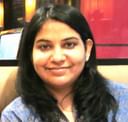Selective Mutism: Treatment, Cost and Side Effects
Last Updated: Jan 20, 2025
What is the Selective Mutism?
Selective mutism is quite different from general mutism. The latter is a diagnosable medical condition, which is caused as a result of some physiological disorder. However, the selective mutism is a behavioural issue, caused as a result of psychological problems or anxiety. Most people suffering from selective mutism are unable to speak in certain social conditions, while they may be able to interact at other points of time.
Treating selective mutism requires a mixture of psychotherapy and medication. The disorder is often diagnosed at early childhood and should be treated as soon as possible. Delaying the start of treatment may increase the complexity of the final treatment procedure. Aside from the psychotherapy and the medications, children may also have to undergo speech-language therapy, sensory integration therapy and occupational therapy.
Even though the cause for selective mutism is not clear, doctors feel that a genetic predisposition to anxiety may be the underlying reason.
How is the Selective Mutism treatment done?
Selective mutism may affect any child and parents need to keep an eye out for the symptoms related to the disease. Only then will the condition be diagnosed and treatment started. The symptoms of the conditions will include speaking at certain times or places and not at others. If staying silent gets in the way of the schoolwork or the normal functioning in society, the child may be suffering from selective mutism as well.
However, you should ensure that the language being spoken by others is the same as what the child knows. If others are speaking in a foreign language, the child may naturally stay mute and does not indicate selective mutism.
Once parents suspect selective mutism, they should consult a doctor and get their child tested. This testing usually involves various speech and language tests that can indicate whether a child is speaking normally according to their age or whether there is some disorder related to the speech.
Treatment is largely dependent on psychological conditioning. For instance, stimulus fading is used to slowly accumulate a child to new person. This may sometime allow for the condition to be rectified over time. Shaping is another procedure that doctors advise. In this process, the child is rewarded every time he/she tries to communicate with others. This slowly makes the child associate communication with a positive feeling and get over the anxiety.
Who is eligible for the treatment? (When is the treatment done?)
Children who have been medically diagnosed to be suffering from selective mutism should seek treatment for the same.
Who is not eligible for the treatment?
If a child does not suffer from mutism of any kind, seeking the treatment is unnecessary. Furthermore, children with other speech disorders will likely not qualify for the treatment used for selective mutism.
Are there any side effects?
The psychotherapy sessions used for treatment will not have any side effects. However, in some cases, doctors may prescribe medications along with the therapy. Usually anti-depressants or anti-anxiety medications are used. Some of these drugs may include severe side effects. For instance, Prozac is a common drug used to treat selective mutism. This medication may lead to side effects such as weight gain, diarrhea, sweating, skin rash and more.
Paxil is another common drug used to treat the condition. It can cause vision changes, insomnia, dry mouth, weakness and loss of appetite.
What are the post-treatment guidelines?
The treatment for selective mutism will continue for as long as the condition is not resolved. There are no guidelines to follow post the treatment. This is because the mutism is mainly a psychological problem that cannot be controlled by taking any other precautions. However, people suffering from the same may need to stay on anti-anxiety drugs for a long period of time post the actual treatment for selective mutism.
How long does it take to recover?
Recovery varies from person to person. For some children, basic psychotherapy may be required to rectify the condition. This is a time taking procedure, which may take effect after a few months. However, in case of severe forms of the selective mutism, medication is also used, which can further increase the time needed for the recovery post the completion of the treatment.
What is the price of the treatment in India?
The price of treatment varies from one person to the next and mainly depends on the intensity of the issue. If the treatment can be performed using psychological therapies only, the cost may be limited to anywhere between Rs. 30,000 and Rs. 75,000. However, in most cases, medication is also prescribed alongside the behavioural and psychological treatment. In such a case, the cost will be anywhere between Rs. 65,000 and Rs. 1 Lakh.
Are the results of the treatment permanent?
Results of the treatment will be permanent in most cases. However, if the selective mutism is not eradicated completely and the treatment is stopped midway, the condition may recur and the symptoms may come back at a later point of time.
What are the alternatives to the treatment?
The selective mutism can also be treated using homeopathic remedies. For instance, argentums nitricum, Baryta Carbonicum and Ignatia are some of the natural remedies that homeopathic doctors may use while treating the condition in children. These medications have almost no side effects ad are generally safer.
Table of content
15+ Years of Surgical Experience
All Insurances Accepted
EMI Facility Available at 0% Rate
Find Psychiatrist near me
Ask a free question
Get FREE multiple opinions from Doctors

